By now, we know that climate change has the ability to increase disasters, negatively impact public health, make infectious diseases worse, affect the economy and primary industries, drastically impact mental health and wellbeing, and destroy native species and ecosystems. Sadly, the list could go on (and on), and its effects are not borne equally.
Climate change is what’s known as a ‘crisis multiplier’ and undoubtedly one of the most pressing global challenges of our time, meaning the gauntlet has been thrown down to governments, communities, individuals, and — yes — businesses to step up and make change before it’s too late.
The role of business in combating climate change
As the primary emitter of greenhouse gases, the business sector is uniquely culpable for the climate emergency. Accordingly, businesses have a critical responsibility and opportunity to lead by drawing down carbon as rapidly as possible — and using our platforms to directly address the injustices brought about and exacerbated by climate change.
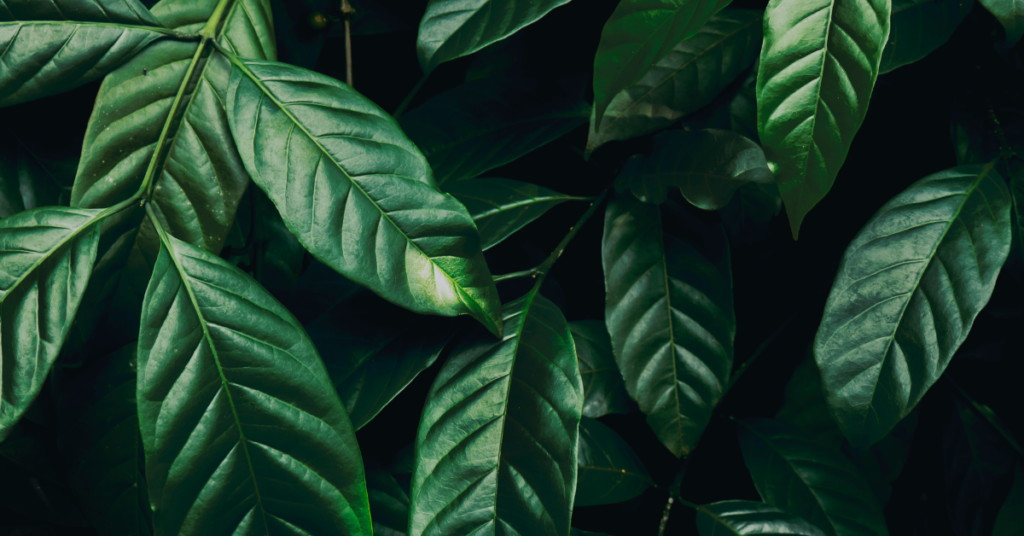
From the B Corp Climate Collective — a group of Certified B Corporations and other businesses working with our network of B Lab and Sistema B organisations to address the current climate trajectory — to tools like the Climate Justice Playbook for Business and B Climate Tools Base, the B Corp movement is making important strides.
And it is against this backdrop, that we recognise and celebrate the B Corps honoured as being Best for the World in the Environment impact area.
Beyond offsetting carbon emissions and recycling correctly, these top scoring businesses are dedicated to implementing innovative business models that directly regenerate the planet and secure its future. Taking bold actions to preserve precious natural resources, from establishing environmental initiatives to maximising sustainable energy, materials, supply chains, and more — they are striving to ‘leaf’ the planet in better condition than they found it.
Colonisation and climate change
Before we dive into the B Corps taking action on climate change, it’s important to acknowledge that, in our region, the reality of the climate crisis cannot be discussed without also reckoning with the ongoing impacts of colonisation.
Conversations on climate change have been limited by colonial and patriarchal perspectives, leaving out the voices, knowledge and strategies of First Nations people for far too long.
Colonialism refers to the practice of acquiring full or partial control over another group’s territory, including the occupation and exploitation of that land to benefit the colonising group. And, for the first time in its 30 year history, The Intergovernmental Panel on Climate Change (IPCC) recently named colonisation as a ‘historic and ongoing’ driver of the climate crisis.
For Harriet Mercer, Research Associate in Climate History at the University of Cambridge, connecting climate change to acts of colonisation in this way involves recognising that historic injustices are not consigned to history: their legacies are alive in the present.
By connecting climate change to colonialism, the IPCC is sending a message that addressing the effects of climate change cannot be achieved without also addressing the legacies of colonialism.
We know that the ongoing impacts of colonisation have not only increased the scale and catastrophe of Australia’s bushfire seasons, but that climate change continues to amplify the colonial displacement of Indigenous peoples from their lands and disrupt land management practices that have been skilfully used to help landscapes flourish since time immemorial.
In the lands known commonly and collectively as Australia, First Nations communities continue to experience devastating cultural and spiritual loss as a result of environmental degradation on Country. The Lowitja Institute, Australia’s national body for Aboriginal and Torres Strait Islander health research, says climate change: “Disrupts cultural and spiritual connections to Country that are central to health and wellbeing. Health services are struggling to operate in extreme weather with increasing demands and a reduced workforce.” And with 65 per cent of First Nations people in Australia living in remote areas, many are at a higher risk of fires, drought and rising sea levels.
Sea levels in the Torres Strait have risen more than twice the global average each year, eroding the ‘viability of coastal communities’ and making relocation likely the only option.
— The Climate Council
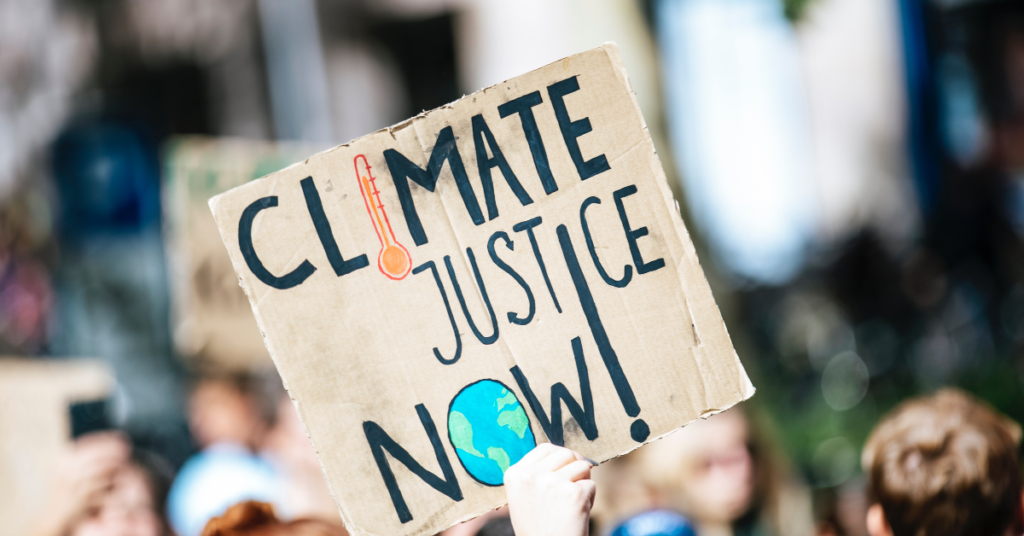
Image Source: Markus Spiske on Unsplash
In Aotearoa New Zealand, the Ministry for the Environment reported that Māori communities have been the first in the country to be directly affected by climate change. Traditional practices connected to Māori identity and wellbeing are being threatened, such as the ability to predict changes — traditional tohu — in their natural environment.
Numerous Māori cultural heritage sites – such as marae (meeting places) and urupā (burial grounds) – are situated in coastal low-lying areas. These places, which are deeply connected with Māori identity, are especially exposed. With culturally significant places getting damaged and the loss of taonga species (treasured species) occurring at a rapid rate, climate change is contributing to the degradation in the mauri (life force) and compromising the ability of Māori to host and care for whānau and manuhiri (visitors).
All of this adds up to support the notion that ‘Climate change is racist,’ which has been posited by journalist Jeremy Williams among others, declaring that climate change compounds historical wrongs against First Nations communities. It creates a type of ‘atmospheric colonisation’ and deeply entrenched colonial racism that represents one of the most pressing global equity issues of our time.
Standing firmly in solidarity with historically marginalised and First Nations communities around the world — those who are currently and will be most affected by the devastating impacts of climate change — the B Corp community is working hard to centre climate justice, action and advocacy in our work through the Environment impact area.
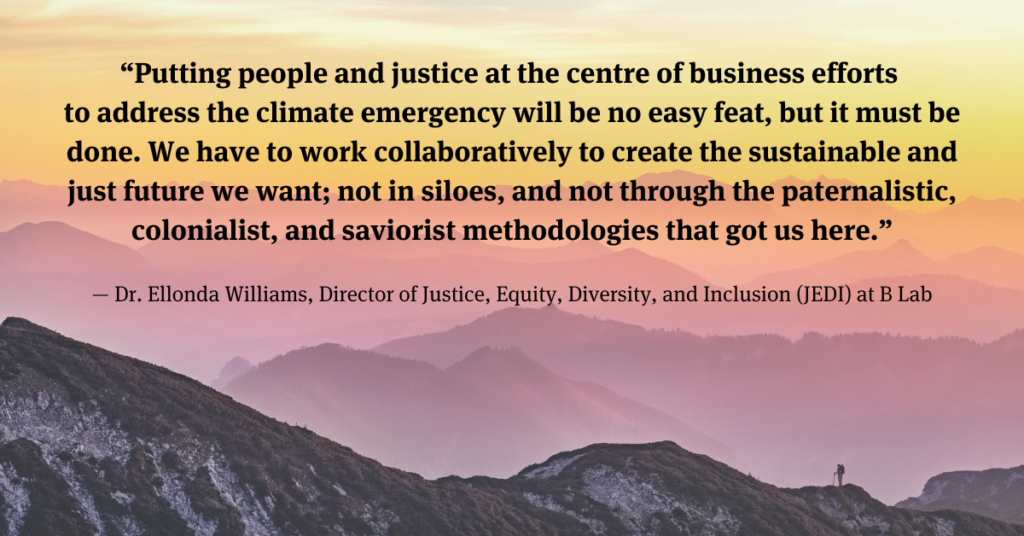
Image: Simon Berger from Pexels
What it takes to be Best for the World: Environment
This year, we are so proud to have 20 B Corps in our region who have been honoured as Best for the World in the Environment impact area. Recognising the interdependence of their actions and their environmental impact, these businesses are leading the way with innovative production processes that minimise both their direct environmental footprint and the indirect impacts of suppliers and distribution channels, at the same time as helping their customers and clients to preserve their natural surroundings.
From renewable energy to waste mitigation, composting, conservation of wildlife and land, toxic remediation, environmental education, and more — businesses who score well under the Environment impact area are having greener and cleaner impacts on air, climate, water, land, and biodiversity.
How B Corps are stepping up for the planet
We love to see the innovative ways that B Corps are taking bold action to preserve precious resources and cultivate planet-friendly practices and environmental initiatives that consider the impact of their everyday footprint.
B Corps like The Farm at Byron Bay are driven by a desire to work in harmony with the earth to create a sustainable environment where people, plants, animals, and the land can thrive. Creating opportunities beyond just growing, The Farm utilises learning from years of soil sampling, aiming to improve and sustain soil health for generations to come. The Farm shares these lessons with their community and their local Shire so that everyone can benefit from the regeneration practices and soil sequestration (a process where CO2 from the atmosphere is stored in soil carbon pools) learned on site.
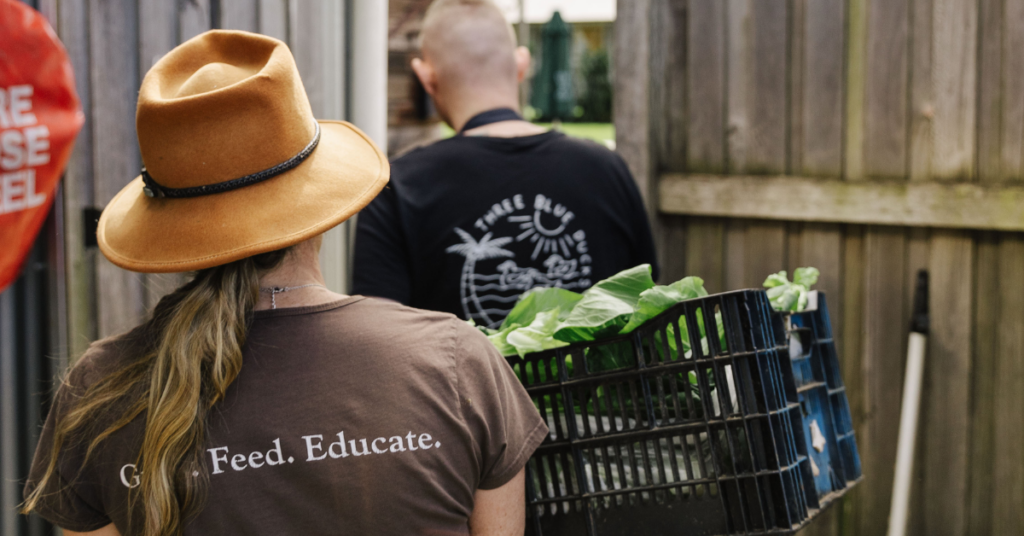
Image Source: The Farm at Byron Bay
Then there are B Corps like Raglan Food Co. that have ‘fermented’ eco-friendly practices right into their products. Their delicious plant-based food alternatives like coconut yoghurt and vegan aioli have a lower carbon footprint than their dairy counterparts, and they tread lighter on the planet thanks to glass jars instead of plastic bottles and a commitment to carbon zero business operations from kitchen to customer. Raglan also plants trees around their factory and along polluted waterways in their local area, contributing to the remediation of the land. And with a composting worm farm for food waste at their factory, and a project to upcycle empty coconut cream drums into Pōhutukawa braziers — the team doesn’t let much waste slip into landfill.
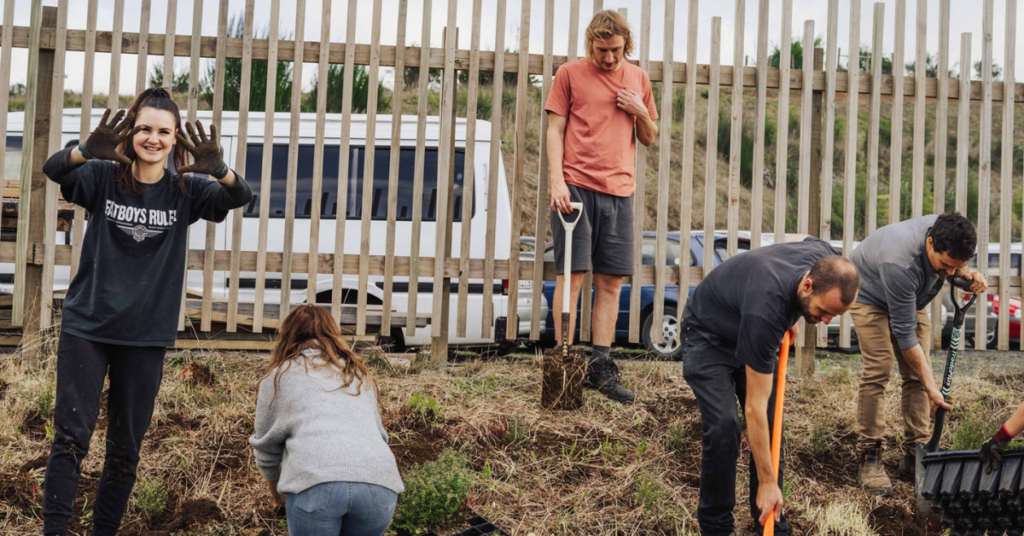
Image Source: Raglan Food Co.
Ready to make some noise?
Congratulations to the following 20 B Corps who have been honoured and recognised on the list of 2022 Best for the World: Environment!
4 Pines Brewing Company | Environment impact score: 46.8 | B Impact Score: 97.9
4 Pines is a microbrewery based on the land of the Gayemagal people in Manly, NSW, committed to making each sip of beer a step towards positive impact since 2006. With each year that goes by, 4 Pines has been learning about new ways to be a more sustainable company. With a ‘Designed to Conserve Manufacturing Process’ Impact Business Model, 4 Pines diverts around 70 per cent of their waste from landfill, and they use 100 per cent renewable electrical energy through solar panels. Dedicated to sourcing locally produced ingredients, and with a water footprint well below the beverage industry standards, they’re also members of 1% for the Planet.
BEAR | Environment impact score: 41.3 | B Impact Score: 124.8
BEAR is a modern, Australian lifestyle brand creating vitamin and dietary supplements on the lands of the Bundjalung Arakwal people in Byron Bay. They donate a proportion of each sale to Australian conservation not-for-profits such as WildArk and The Great Barrier Reef Foundation, helping to protect the biodiversity of the planet. Committed to a greener future, BEAR also fully offsets their carbon emissions each year and supports the Yarra Yarra Biodiversity Corridor to help minimise their impact on the environment. They purchase electricity from accredited renewable energy generators through GreenPower and package their products in 100 per cent recycled glass jars.
Boody | Environment impact score: 44.2 | B Impact Score: 101.6
Boody creates bamboo underwear and basics that are better for the world. Their manufacturing process is designed to mitigate waste at every opportunity, using natural and organic bamboo fabric. Their packaging is made with recycled, post-consumer waste by FSC-certified suppliers who prioritise preservation of natural ecosystems and prevent deforestation. Dedicated to conservation, Boody prohibits toxic chemicals from being used anywhere in their supply chain, as well as monitoring and minimising their energy, carbon and water emissions.
“You’ll notice each of our products has an impact index. An impact index is a tool that calculates the environmental impact of each product. By measuring our own environmental footprint, we can let our community know and understand environmental savings when better practices are used.”
Chia Sisters | Environment impact score: 55.7 | B Impact Score: 118.6
Chia Sisters is a juice company that prioritises having a positive impact on the environment and the communities in which they operate. They were Aotearoa New Zealand’s first entirely solar-powered juicery, and have achieved net zero carbon emissions and a climate positive business operation status, not to mention leading workshops to educate and help over 1,000 businesses on their ‘zero carbon’ journeys. Chia Sisters offsets their emissions and regenerates local farmland by planting and maintaining native trees in the local Rameka forest, and they have been recognised for having an ‘Environmentally Innovative Manufacturing Process’ (an Impact Business Model recognised in the B Impact Assessment).
Coconut Bowls | Environment impact score: 47.8 | B Impact Score: 135.6
Coconut Bowls change the way we consume food for the better by replacing single use plastics with all natural, eco-friendly products like bowls, cups, cutlery and more. After learning that billions of coconut shells are discarded or burnt as waste each year, they wanted to reimagine the waste stream of the coconut tree, and help to provide social and economic security for rural farmers in Vietnam at the same time. Coconut Bowls use sustainable, plastic-free packaging, offset their carbon emissions, and ensure the ‘end life’ of their products are entirely compostable — leaving no negative trace, now or for future generations.
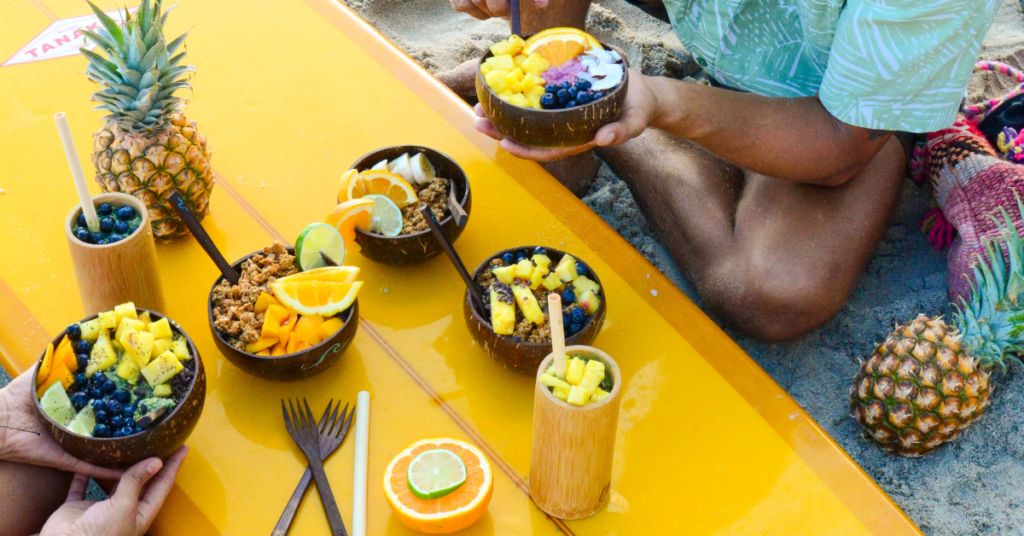
Image Source: Coconut Bowls
Emaho Trees | Environment impact score: 45.7 | B Impact Score: 82.3
Emaho Trees is a boutique family-run tree farm, growing primarily advanced Australian native trees north west of Meanjin/Brisbane, Queensland. They operate on renewable energy, harvest rainwater for irrigation, use organic fertilisers, and utilise agriculture processes that are designed to conserve the natural environment. Founded on the principles of sustainable farming, Emaho Trees is a proud supporter of both local and global businesses through exporting, and horticultural communities across Australia.
Flow Hive (BeeInventive) | Environment impact score: 51.3 | B Impact Score: 111.8
Flow Hive’s mission is to have a regenerative impact on the planet by harvesting honey in a gentle way through their ‘Flow Hive.’ Chasing the beekeeper’s dream, this father and son duo set their sights on finding a way to harvest honey that was less stressful on the bees and the harvester. Due to its design, the Flow Hive allows honey to drip straight through to a jar, eliminating any harm done to bees through traditional beekeeping practices. Flow aspires to be an example of how business can be a vehicle for environmental change, and finding positive, sustainable solutions to climate, pollution and extinction crises.
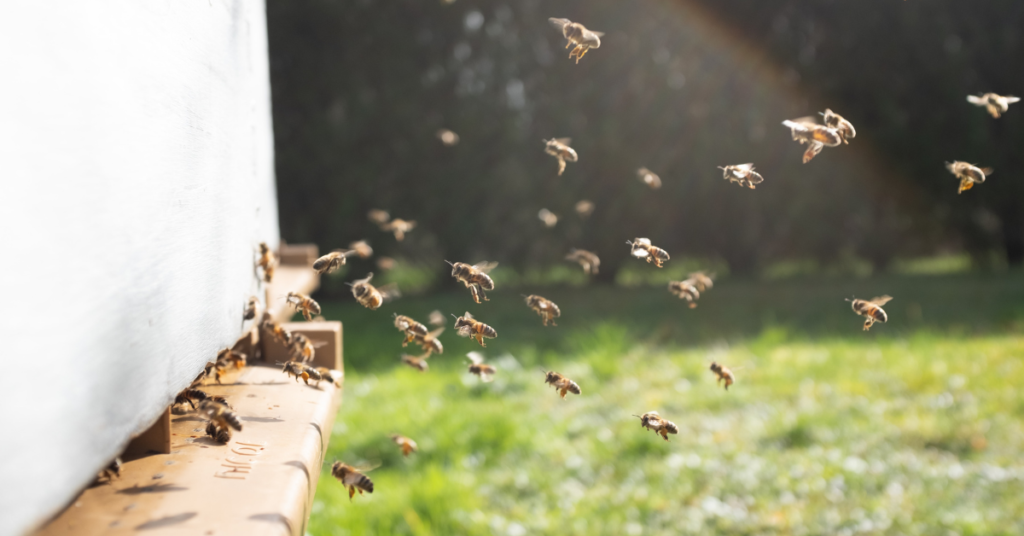
Image Source: Damian Turner from Unsplash
Grainstone | Environment impact score: 43 | B Impact Score: 92.7
Grainstone mines traditional food waste streams to create speciality flours and protein isolates, displacing unsustainable alternatives from entering landfill. By conserving precious resources, and repurposing them into nutrient-rich foods, Grainstone is tackling the global challenges of food waste and undernourishment. They are creating the food ingredients and biomaterials needed tomorrow using the food waste streams of today, powered by renewable energy.
Hepburn Energy | Environment impact score: 47.6 | B Impact Score: 143.2
Hepburn Energy is a community-owned wind farm located on Dja Dja Wurrung land at Leonards Hill, Victoria, producing clean energy to over 2,000 homes in the Hepburn Shire since 2011. At their core is a desire to take constructive action against climate change. They are currently working on a solar farm, striving to produce enough energy to offset 1,800 homes’ emissions in their community, as well as creating community batteries to increase local energy resilience, and electric vehicle charging stations to promote the transition to fuel-free cars. Their goal is to make the shift to 100 per cent renewable energy to protect the Earth from emission-induced climate change.
KeepCup | Environment impact score: 44.3 | B Impact Score: 107.4
KeepCup was designed to reduce unnecessary waste by creating barista standard reusable cups to help us all enjoy our favourite brew on the go. Since launching in 2009, they have saved an estimated eight billion single-use coffee cups from landfill each year. Encouraging consumers to ‘Buy once. Buy well. Reuse. Repair.’ KeepCup’s Australian and UK hubs are both solar powered, and they support the circular economy and minimise the impact of supply chains through operations and partnerships with Sea Shepherd and the Bob Brown Foundation.
Method Recycling | Environment impact score: 43.8 | B Impact Score: 93.4
Based in Aotearoa New Zealand, Method Recycling designs elegant solutions for modern spaces to encourage more recycling and less waste. Initially targeting employees who were apathetic about recycling, Method created visible, flexible, beautiful, and effective recycling bins that were specific to the waste streams of various businesses. As a result, they have facilitated positive change in commercial environments by advocating for sustainability and utilising design-thinking to divert millions of kilograms of waste from landfills.
Minimum Wines | Environment impact score: 44.2 | B Impact Score: 129.4
Minimum Wines is committed to creating quality organic wines that respect the land they come from and the people who drink them. So far, they have: composted over 27 tonnes of organic waste back into soil; planted 2,049 trees with One Tree Planted; installed soil-moisture monitoring sensors to lower their water consumption, recording a 30 per cent decrease between 2019 and 2020; used 100 per cent recyclable and/or compostable packaging; committed to the cork (over screw top bottle lids) with sustainable harvesting of cork bark; and ensured minimum shipping impact with 91 per cent of their wines shipped in dozen boxes. What a good drop!
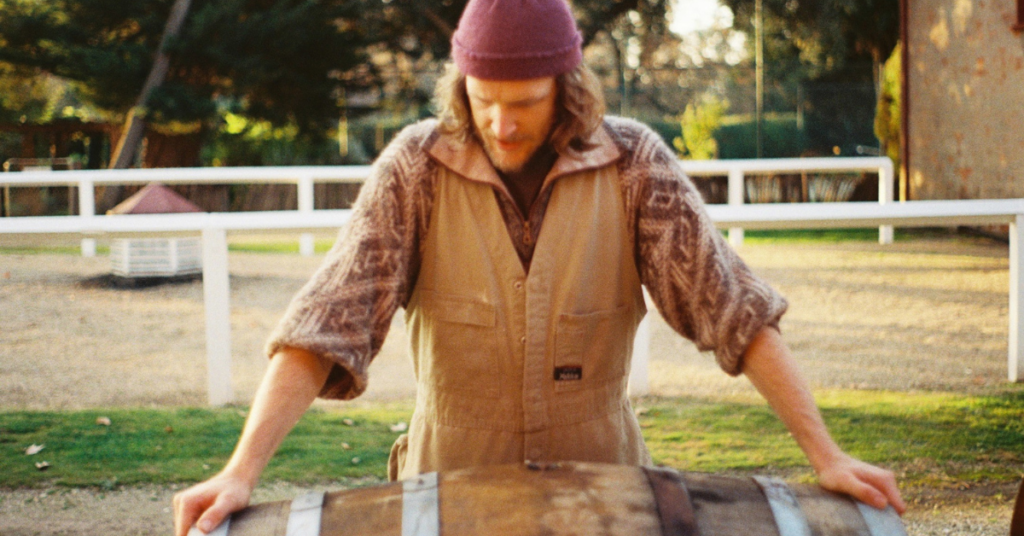
Image Source: Minimum Wines
Mud Environmental | Environment impact score: 64.6 | B Impact Score: 91.3
Mud Environmental are environmental stewards comprising an expert team of auditors, scientists and engineers who measure what matters and then design and implement remediation solutions to contamination problems that improve our natural world. They have been recognised for not one, but two Impact Business Models under ‘Toxic Reduction and Remediation’, and ‘Environmental Education and Information’. They also offset their carbon emissions, generate and use their own energy through solar battery storage, use few resources and produce little waste.
Nutricare Holdings | Environment impact score: 44.4 | B Impact Score: 103.5
Nutricare manufactures scalable and organic goods such as bamboo body wipes, bandages, body tape, and other first aid products. They create products using responsibly-sourced materials that are free from harmful chemicals and utilise low-waste processes. Living their philosophy that ‘healthcare access is for everyone and it shouldn’t cost the earth’, their packaging is compostable, products biodegradable, and they contribute to regenerative agriculture and community education through Trees for the Future.
Raglan Food Co. | Environment impact score: 42.7 | B Impact Score: 96.7
Raglan Food Co. makes plant-based food products, the ‘OG’ being their vegan coconut yoghurt. The philosophy behind their business is to ‘propel plant-based eating forward’, viewing it as a necessary shift for the wellbeing of the planet and to mitigate climate change. Initiatives such as the 1 Million Pieces Project, cleaning plastic from the ocean, Bee Friends, sponsoring permaculture beehives around Aotearoa New Zealand, tree planting, and maintenance of the Wainui Reserve, all contribute to Raglan’s significant positive impact on the planet.
Reef Ecologic | Environment impact score: 55 | B Impact Score: 97.5
Based on Bindal and Wulgurukaba Land in Townsville, Queensland, Reef Ecologic works to provide innovative solutions to environmental challenges facing tropical marine ecosystems, as well as to the people who love and depend on them. With the goal of securing a more sustainable future, Reef Ecologic has implemented major projects in all the coral reef regions of the world including our region’s own Great Barrier Reef, the Caribbean, and the Indian Ocean, amongst others. They excel in the areas of land and wildlife conversation, and disseminating environmental education.
“Through tailored programs like coral gardening, citizen science, underwater art and reef leadership projects, Reef Ecologic seeks to engage, inspire, and empower communities to care for reefs and the planet.”
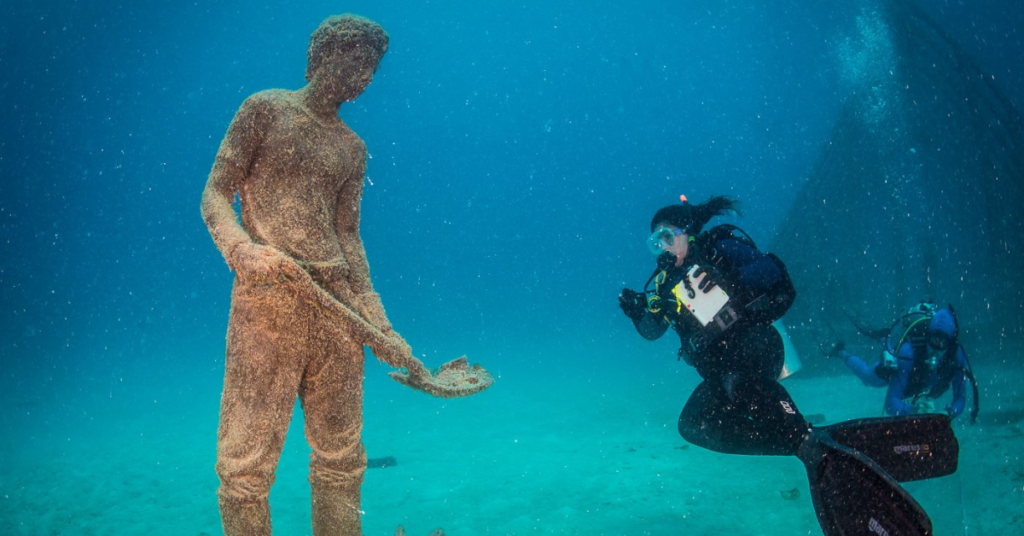
Image Source: Reef Ecologic
RePlated | Environment impact score: 56.9 | B Impact Score: 125
RePlated created a solution to the waste accumulated from takeaway food by making reusable food containers from soft drink bottles that would otherwise end up in landfill. Urging people to join the ‘Reuse Revolution’, they’re on a mission to eliminate single-use containers for takeaway food. With circularity at their core, they take back old RePlated containers to repurpose them into new products. They’re carbon positive, they preference local suppliers, and they donate two per cent of revenue to wildlife and habitat renewal initiatives.
“True environmental impact comes from lots of small and big choices. If you make impact integral to the business model, those improvements will follow authentically. Our challenge as we grow will be to maintain this level of attention on the environment, but also to improve how we treat our people and the contribution we make to society as a whole.”
RooCreate | Environment impact score: 41.6 | B Impact Score: 85.5
Did you know that it only takes 60 days to have recycled aluminium back on the shelf? RooCreate is on a mission to eliminate the waste in product packaging without sacrificing design. They create branded eco-packaging for various industries such as cosmetics, clothing, gifting, and more. They use biodegradable materials that produce a minimal carbon footprint and ensure packaging is easy to disassemble and therefore recyclable at the end of its life.
The Farm | Environment impact score: 45.7 | B Impact Score: 103.6
The Farm at Byron Bay is a working farm housing a collection of micro-businesses that share the common goal of creating a harmonious existence with the land, animals and communities, and making a change towards a healthier lifestyle. Their motto ‘Grow, Feed, Educate’ is embedded into everything they do from using sustainable, chemical-free farming techniques to nurturing the environment through a range of causes designed to ‘give back’. They educate communities and visitors on environmental lessons they learn through practice, and design their agriculture processes through the lens of conservation.
Verdecon | Environment impact score: 47.7 | B Impact Score: 85.9
Verdecon is a responsible construction company committed to mitigating the climate impact of their industry. They prioritise effective waste management, filtering this into their supply chain and ensuring that they source materials locally, wherever possible. By reducing their waste, building environmentally-friendly homes, and operating as a carbon-neutral company, Verdecon is knocking down the construction industry’s status quo and building a new and improved eco-friendly model.
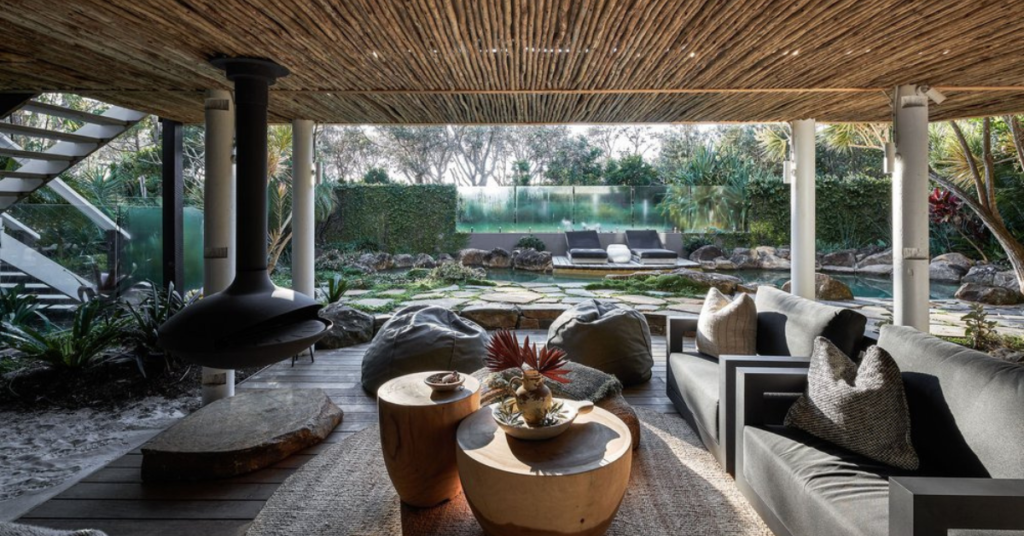
Image Source: Andy Mcpherson for Verdecon
Wanting to increase your positive impact on the planet?
As always, we invite our top scoring B Corps to share any advice they have with other businesses aspiring to have a more positive impact on the environment, and we couldn’t go past this one from Coconut Bowls:
“Take small steps towards improving your raw material choices, where you source them from and how you package them — it can have an incredible impact on the environment. Naturally derived raw materials and packaging will go a long way to reducing the impact of your products on the environment.”
And this one from RePlated: “True environmental impact comes from lots of small and big choices. If you make impact integral to your business model, improvements will follow authentically.”
Each of us has a responsibility and an opportunity to minimise our environmental impact, and support causes that make a tangible difference to the earth. So, whether it’s buying from a B, investing in a B, working for a B, or certifying as a B: take a series of small, imperfect actions now before it’s too late.
Want to learn more and get inspired by this year’s top scoring B Corps? You can now search the B Corp Directory by Best for the World!
READ NEXT: When giving back is more than a buzzword — what we can learn about community from these top scoring B Corps ↗

